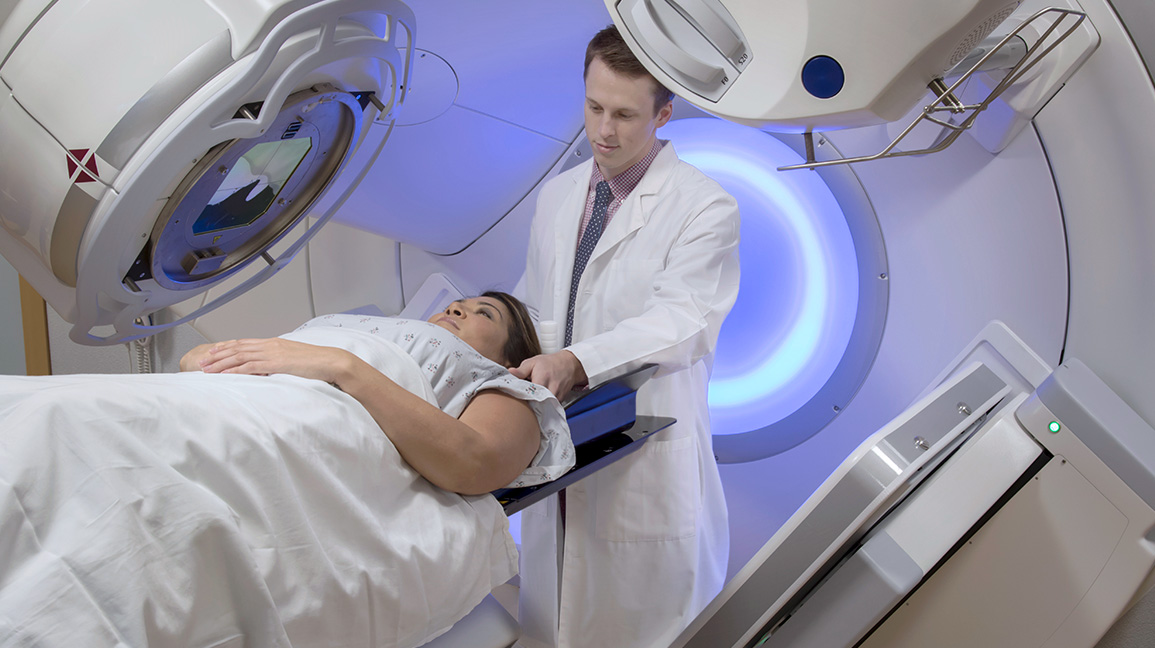
How to Care for Yourself During and After Radiation Therapy
Radiation therapy heals cancer by destroying tumor cells with high energy. Skin changes and fatigue are common side effects of radiation therapy for many patients. Complications vary for every person depending on the area of the body being treated and the radiation dose. There is no way to know who will experience adverse effects.
Other potential radiation therapy side effects include:
- Nausea and vomiting
- Diarrhea
- Changes in blood counts
- Hair loss specifically in the treatment area
- Changes in the mouth, such as tenderness, dryness, and difficulty swallowing
- Tenderness and soreness of the genital organs
It is important to take care of yourself during and after radiation therapy.
At Sierra Hematology & Oncology, our best radiation oncologist in California are always happy to give our patients advice on how to take care of themselves at home. With our team in place, you will feel better during or after radiation therapy in California if you follow the below guidelines.
General care
- Accumulate foods that are prepared easily.
- Eat a balanced diet with food varieties high in protein and calories.
- Unless otherwise instructed, consume plenty of water and other fluids.
- Before taking any vitamins, herbs, or supplements, talk to your doctor.
- Expect some hair loss in the treated area. Be prepared that the hair may not grow back at times.
- Drink cool water if your mouth or throat gets dry or hurts. Ice chips may likewise help.
Skincare
- Looking and feeling sunburned over your treatment area is normal. It could be dry and irritable. It may cause swelling and itching which lead to blister and peeling.
- Make sure to leave the skin dry and clean; however, don't scrub or utilize soap on the area of treatment. Wash with warm water.
- Ask your treatment group what kind of moisturizer or cream to utilize.
- Ask the doctor whether shaving the treated area is OK.
- Avoid exposing the area of treatment to the direct sunlight. The use of sunscreen should be discussed with your radiation therapy team. Protect your skin around the treatment area because it will be more susceptible to the sun.
- Unless your radiation therapist approves, do not remove ink marks. When you wash, don't scrub or use soap on the marks.
- Safeguard the skin from heat and cold.
- After swimming in a pool, rinse thoroughly because chlorine can dry out the skin.
- Inform the radiation therapist if the skin in the therapy region gets cut or scratched. They will tell you how to take care of it and, if necessary, how to bandage cuts, like using sensitive skin-friendly tape outside the treatment area.
- Ice packs, heating pads, saunas, and hot tubs should not be used.
- Dress comfortably and loosely to avoid rubbing your skin. Avoid covering the treatment area with tight clothing.
- Try not to utilize sticky bandages or tape on the treated skin.
Care for nausea, vomiting, and diarrhea
- Consume clear fluids. Take a sip or two at a time, but drink more than usual.
- Take the prescribed medications as directed.
- Smaller meals with snack breaks may be beneficial. After waiting a little, you can always eat more, but if you eat more than your stomach can handle at once, it could cause problems.
- Consume bland, soft, and low-fiber foods.
- Avoid eating spicy, fried, fatty, or gas-producing foods. Additionally, avoid foods high in added sugar.
Take care of your fatigue
- As your treatment progresses, you may gradually become more and more tired.
- Attempt to get somewhere around 8 hours of rest around nighttime.
- Schedule short naps and rest breaks throughout the day.
- Try to work out every day. You can feel less tired by going for a short walk. Additionally, exercise can improve your nighttime sleep.
- Allow others to help you. Focus your efforts only on the major tasks. Don't go overboard.
Taking medicines
- Follow the directions for any medications you were given. Make sure you understand the purpose of each medication, the appropriate dosage, and how to take it.
- Talk to your doctor about taking over-the-counter medications before doing so. Some might not be right.
- Connect with your doctor before taking any natural herbal treatments, vitamins, or supplements.
- Inform your healthcare provider if your medications are not working.
Mouth care
- Increased risk of cavities, tooth decay, infection, or bleeding
- Consult a dentist before beginning radiation therapy if you are receiving treatment for the head and neck. They will conduct a comprehensive oral health exam and perform any necessary preventative dental work. They can likewise propose ways of managing mouth, teeth, and jawbone issues brought about by radiation treatment or other therapies.
Call 911
Call 911 in case you experience the following signs:
- Fainting
- Seizures
- Trouble walking, swallowing, or breathing
- Extreme confusion
When should you seek medical advice?
Call your care provider at once if you experience:
- Fever ≥100.4ºF
- Sore throat
- The appearance of white patches in the throat or mouth
- Continuous nausea, vomiting, or pain not relieved by medications
- Persistent hoarseness or cough
- Redness in the legs
- Leg pain and swelling
- Bruise and bleeding
- Black stool or getting blood in the stool
- Unable to consume anything due to nausea or mouth sores
Final Thoughts
Sierra Hematology & Oncology is here to provide you with personalized, compassionate care and cutting-edge radiation technology when you require radiation therapy in California. We hope that you will never need it, but if you do, our radiation treatment can offer you additional care tips based on your unique condition.
Also Read:
Bacterial colonization of the microbiome linked to the development of ovarian cancer
These 5 Factors Increase Your Risk for DVT – The Silent Killer

